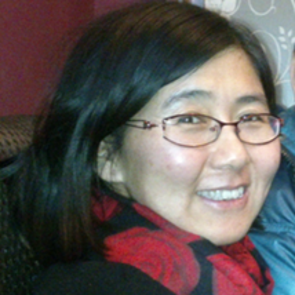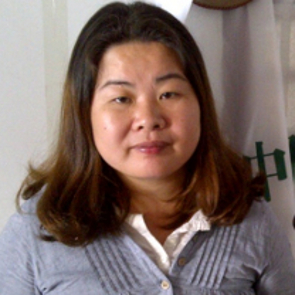While China postures on the international stage, women human rights defenders are routinely targeted
On 27 September China will co-host with UN Women a “Global Leader's Meeting on Gender Equality and Women's Empowerment” in New York. Chinese President Xi Jinping will address the gathering, as will Secretary General of the UN, Ban Ki-moon. The event will mark 20 years since the Beijing Declaration and is intended to place 'gender equality, women's rights and women's empowerment at the centre of the global agenda'.
This most worthwhile initiative seeks to reaffirm commitments made by states in Beijing in 1995 towards eliminating gender inequality and discrimination against women. That China has been given the platform to co-launch this initiative is astonishing, given its recent treatment of women human rights defenders. The onus is on the Chinese government now more than ever to live up to the commitments that it makes at this summit and avoid making a mockery of it.
In its concept note outlining the genesis and objectives of the summit, UN Women stresses the 'golden opportunity' that member states of the UN now have to 'position gender equality, women's rights and women's empowerment at the centre of the global agenda'. However a top down approach towards gender equality clearly cannot make this happen , and the participation of civil society in achieving these laudable goals is key in each country. It is difficult to understand how this might happen in a country like China, where there has been a concerted crackdown on civil society over the past 18 months with many organisations being forced to close, including those focusing on women's rights.
The concept note goes on to suggest what commitments states could make at the summit in order to draw closer to the goal of gender equality, including 'launching public mobilisation and national campaigns'. This suggestion is particularly ironic given that it was exactly this – attempts to launch a campaign highlighting sexual harassment – that landed five Chinese feminists in detention for over a month earlier this year. These five young feminists have been active in China for a number of years challenging discrimination, highlighting violence against women and educating younger women through a variety of means including performance art, trainings and online campaigns. They had consistently faced harassment, police pressure and warnings from their universities as they sought to empower other women to demand equality and shine a light on gender-based violence. Despite the obstacles they faced, they continued their work to push forward the commitments made by China in Beijing in 1995, including 'taking concrete steps to protect the rights and interests of women.”
Since their release on bail in April 2015, the voices of these five WHRDs have fallen largely silent. Their bail conditions mean that the case against them remains open and they are liable to be detained again at any time. Instead of promoting an equal rights agenda and encouraging the participation of civil society in achieving this, the Chinese government has instead chosen to make an example of some of those most dedicated to gender equality. Even this week police pressured the landlord of one of the five to evict her while another was reportedly threatened with being re-detained, presumably for speaking out about China's role in this summit.
Scores of other women human rights defenders around the country have been detained or threatened because of their work protecting or advancing the rights of women and girls. Ye Haiyan was targetted for drawing attention to the sexual abuse of female students by a school principal and local officials, while lawyer Wang Yu has been missing since disappearing into police custody in July this year. Wang Yu has taken on a raft of human rights cases, including that of the abused students, and she provided legal assistance to one of the five feminists mentioned above. Her husband has also been detained and her son has been questioned. She has not been allowed to meet her lawyers,who do not even know where she is being held.
China co-hosting a global meeting on gender equality and women's empowerment runs the risk of undermining the entire exercise. If the Chinese government truly wanted to lead by example in these areas it would be promoting and protecting the work of its brave women human rights defenders, rather than punishing them for it.


